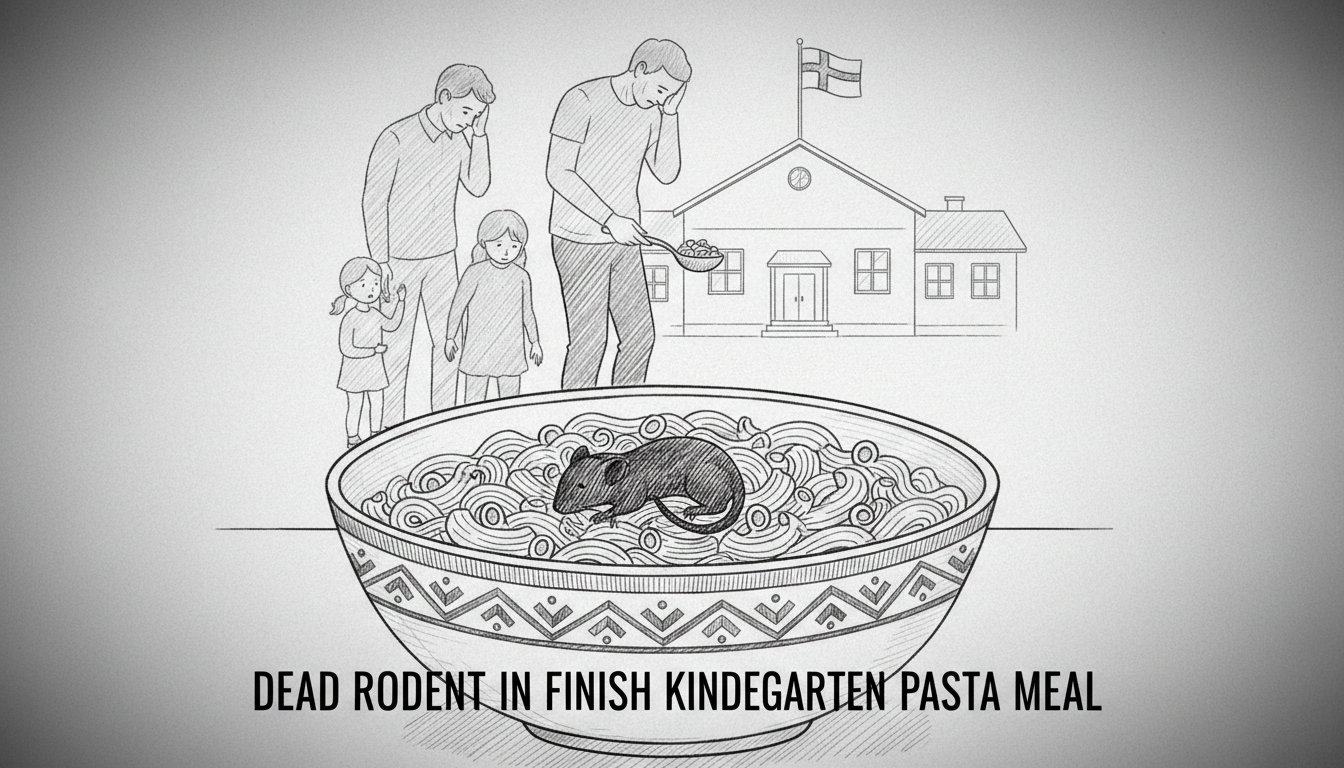A dead field vole pup was discovered in pasta served to children at a kindergarten in Oulu, Finland. The incident occurred at Asema daycare in Haukipudas district on Monday. Food service company ISS provided the meal which was prepared in large batches at a local school kitchen.
The rodent was found during food distribution. Staff served the pasta to 59 people before discovering the animal. Initially, workers mistook the small creature for a mouse. The field vole pup measured slightly larger than the cappelli pasta shapes used in the meal.
ISS manages food services for Asema daycare. The company prepares meals at Haukipudas school kitchen using bulk cooking methods. The pasta involved in this incident came from Kespro wholesale supplier. Monday's menu featured beetroot sauce or vegetable sauce with boiled cappelli pasta and grated vegetables.
This contaminated food batch also went to two other facilities. Tsemppi activity center provides mental health and rehabilitation services. The other recipient was a child protection special unit. All three locations received food from the same preparation batch.
Health inspectors and pest control professionals visited the school kitchen on Tuesday. Their inspection found no evidence of rodent infestation in the facility. The animal apparently entered the food supply with uncooked pasta before preparation.
ISS promised a thorough investigation into the incident. The company acknowledged the seriousness of the food safety breach. Such contamination cases trigger automatic reviews of supply chain and preparation processes.
Finland maintains strict food safety standards across its education system. The country's welfare state model prioritizes child wellbeing through regulated meal programs. Municipalities typically outsource school and daycare meals to private contractors like ISS.
This incident recalls similar food safety issues in Nordic institutions. Sweden faced criticism last year when mold was found in school meals. Norway investigated several cases of foreign objects in kindergarten food. Such incidents challenge the region's reputation for high welfare standards.
Parents naturally question how rodents enter institutional food preparation. The answer likely involves supply chain vulnerabilities rather than kitchen hygiene. Bulk food suppliers sometimes struggle with pest control in storage facilities.
What consequences will this incident trigger? ISS faces potential contract reviews and financial penalties. Municipal authorities typically impose strict sanctions for food safety failures. The company must demonstrate improved quality controls to maintain public contracts.
Finnish food safety authorities will likely expand inspections to other ISS facilities. The case may prompt nationwide reviews of institutional meal protocols. Such incidents often drive regulatory tightening across the sector.

